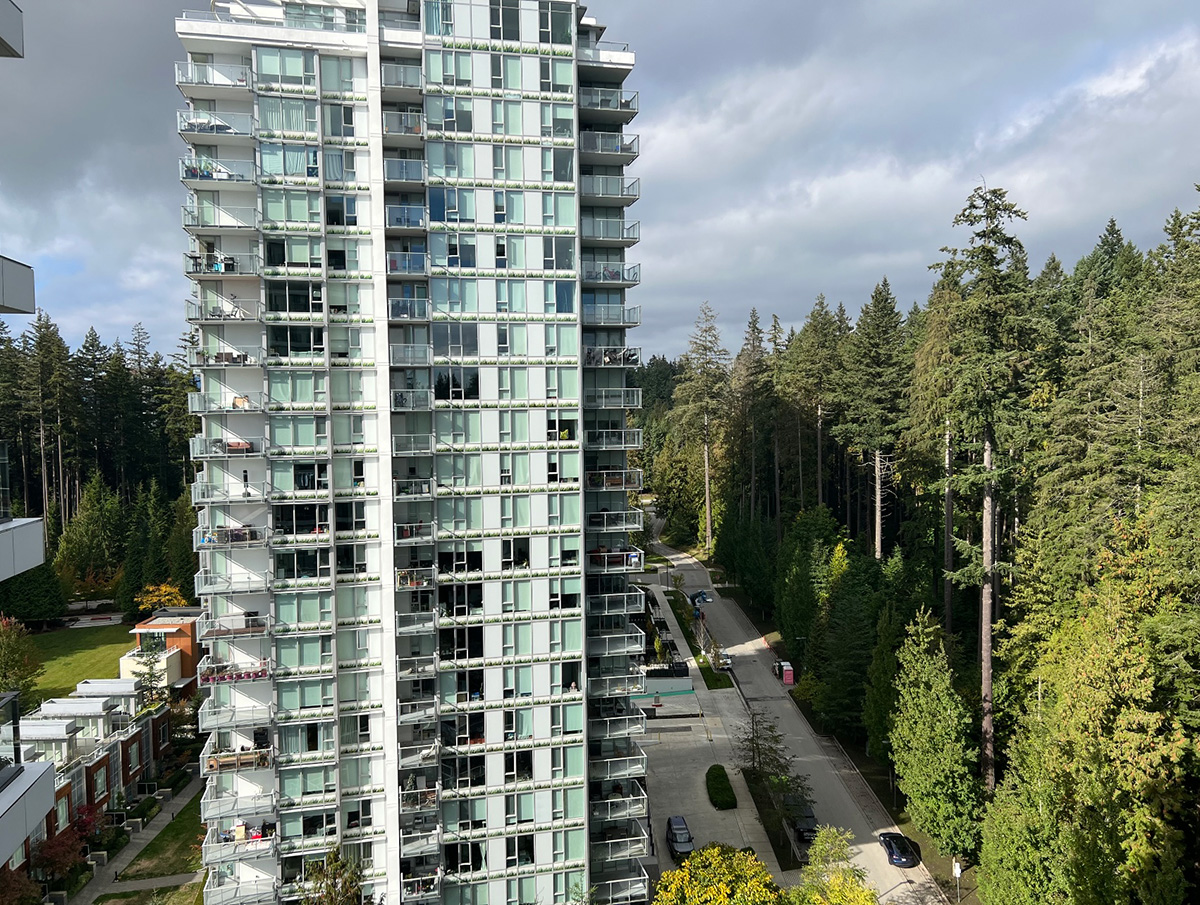Amidst growing concerns over climate change, wildfires, and urban development, experts are saying trees may be the key in coping with those challenges.
The importance of trees has led the UNA to partner with UBC for a project that aims to take an inventory of the trees on campus, with an overall aim to improve urban forest management practices, improve our understanding of local biodiversity, and assess the climate resilience of urban forests.
The project commenced in 2023, with full-scale implementation beginning in May this year.
Associate professor Melissa McHale at UBC’s Faculty of Forestry is the project’s principal investigator. Her lab studies urban forest structure and the structure of urban environments. In particular, the lab looks at how those structures translate into ecosystem function and how people experience the environment. Research is also looking into urban heat and urban greening – both of which are important factors for adapting to longterm climate change.
There are many ways in which the project fits into the larger scheme of climate adaptation strategies, says McHale.
Through this study, the UNA and UBC are taking a more forward-thinking approach to be better prepared for crises.
By assessing the current health of our trees, UNA and campus officials will know where trees need to be planted and when they should be replaced to create a healthier urban forest.
“We don’t know what species are going to do well in a future climate. We can guess based on the best evidence, but in the end, we don’t know,” McHale says. “So, if we start collecting data now, in the future, we can make decisions that are informed by how trees are doing in our specific environment.”

The UNA became a project partner not only because of its role in providing municipal-like services on campus, but also because of common goals with UBC.
“We’ve really leaned into understanding the role we can play as scientists and students in understanding the urban environment around UBC, and how we can manage that together effectively with partners,” says McHale.
The UNA plays a role through their interactions and relationships with community members, specifically, how they experience the natural environment. The organization also has knowledge on tree and ecosystem health, and the data it gathers on what species are planted and their health in the local urban environment.
For students involved with the project, there are several layers of learning. Senior level undergraduates are trained in data collection, so that they can collect tree inventory data and learn to manage and analyze it.
Lab managers navigate the space between research and collecting data, before translating it into research outcomes.
Spatial scientists, according to Dr. McHale, “… are learning how to link these data to other data sets and actually visualize them spatially.”
“We have a host of lab and geographic information system techs that will integrate these data sets with some other things that we’re collecting on campus and also allow it so that this data set could be integrated into the broader tree inventory and also be a source for people to use,” she says.
McHale’s team has access to software that will allow researchers to specify locations of trees to an accuracy of 5 centimeters, helping identify each tree on a map, where it belongs, and whose responsibility it is to manage it. The data will also be recorded in a way so it can be easily updated, she added.
Ultimately, McHale says she hopes one of the most important lessons to be learned through the project is communication, and bringing together project stakeholders and concerned residents.
“I know there is a growing population of people in the neighborhoods that really care about the place they live, and I see this as a way to increase communication and bring those people into decision-making because we all have to play a role caring for our urban environment,” she said.
ARIJIT JOSHI IS A RECENT MASTERS OF JOURNALISM GRADUATE FROM UBC. HE WRITES ABOUT CLIMATE CHANGE, URBAN PLANNING, CONSERVATION AND LOCAL GOVERNANCE.
